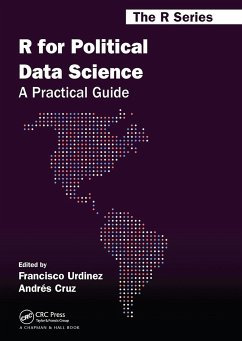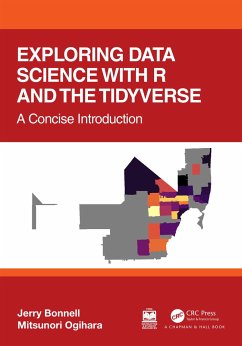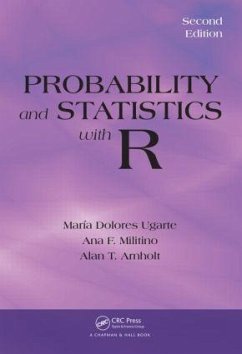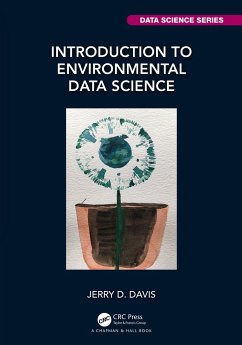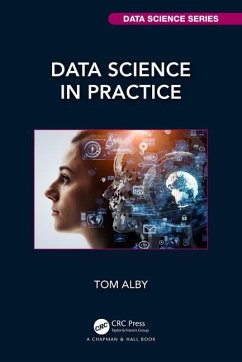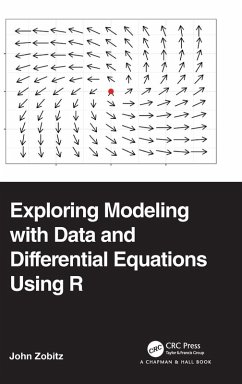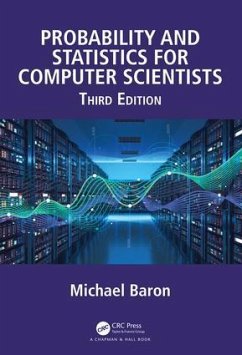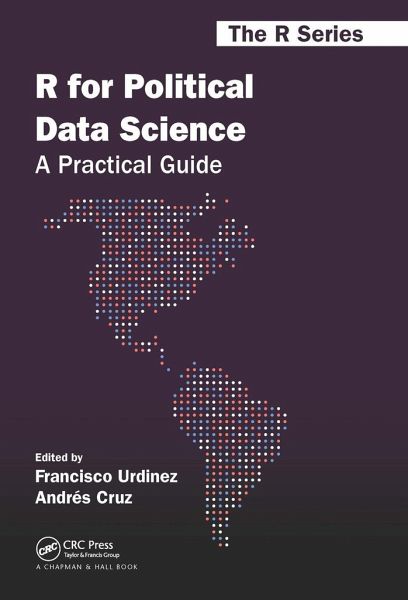
R for Political Data Science
A Practical Guide
Versandkostenfrei!
Versandfertig in 6-10 Tagen
138,99 €
inkl. MwSt.
Weitere Ausgaben:

PAYBACK Punkte
69 °P sammeln!
R for Political Data Science: A Practical Guide is a handbook for political scientists new to R who want to learn the most useful and common ways to interpret and analyze political data. It was written by political scientists, thinking about the many real-world problems faced in their work. The book has 16 chapters and is organized in three sections. The first, on the use of R, is for those users who are learning R or are migrating from another software. The second section, on econometric models, covers OLS, binary and survival models, panel data, and causal inference. The third section is a d...
R for Political Data Science: A Practical Guide is a handbook for political scientists new to R who want to learn the most useful and common ways to interpret and analyze political data. It was written by political scientists, thinking about the many real-world problems faced in their work. The book has 16 chapters and is organized in three sections. The first, on the use of R, is for those users who are learning R or are migrating from another software. The second section, on econometric models, covers OLS, binary and survival models, panel data, and causal inference. The third section is a data science toolbox of some the most useful tools in the discipline: data imputation, fuzzy merge of large datasets, web mining, quantitative text analysis, network analysis, mapping, spatial cluster analysis, and principal component analysis.
Key features:
Each chapter has the most up-to-date and simple option available for each task, assuming minimal prerequisites andno previous experience in R
Makes extensive use of the Tidyverse, the group of packages that has revolutionized the use of R
Provides a step-by-step guide that you can replicate using your own data
Includes exercises in every chapter for course use or self-study
Focuses on practical-based approaches to statistical inference rather than mathematical formulae
Supplemented by an R package, including all data
As the title suggests, this book is highly applied in nature, and is designed as a toolbox for the reader. It can be used in methods and data science courses, at both the undergraduate and graduate levels. It will be equally useful for a university student pursuing a PhD, political consultants, or a public official, all of whom need to transform their datasets into substantive and easily interpretable conclusions.
Key features:
Each chapter has the most up-to-date and simple option available for each task, assuming minimal prerequisites andno previous experience in R
Makes extensive use of the Tidyverse, the group of packages that has revolutionized the use of R
Provides a step-by-step guide that you can replicate using your own data
Includes exercises in every chapter for course use or self-study
Focuses on practical-based approaches to statistical inference rather than mathematical formulae
Supplemented by an R package, including all data
As the title suggests, this book is highly applied in nature, and is designed as a toolbox for the reader. It can be used in methods and data science courses, at both the undergraduate and graduate levels. It will be equally useful for a university student pursuing a PhD, political consultants, or a public official, all of whom need to transform their datasets into substantive and easily interpretable conclusions.





